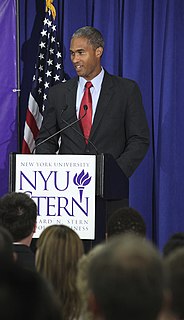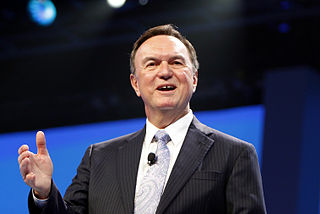A Quote by Peter Blair Henry
I was born in Jamaica but was educated by, and now serve, prestigious First World institutions, so I believe that I have a unique, dual perspective. To sidestep any biases I might have, I use the objective lens of the stock market to discover which policies actually delivered prosperity to emerging markets.
Related Quotes
There is a bit of a problem with the match between derivative securities markets and the primary markets. We have long ago instituted principles, essentially high margin requirements, to prevent certain instabilities in the stock market, and I think they're basically correct. The trouble is that there's a linkage, let's say, between something like the stock market and the index futures markets, and the fact that the margin requirements are very different, for example, played some role in the October '87 crash.
Unfortunately our stock is somehow not well understood by the markets. The market compares us with generic companies. We need to look at Biocon as a bellwether stock. A stock that is differentiated, a stock that is focused on R&D, and a very-very strong balance sheet with huge value drivers at the end of it.
Unfortunately, our stock is somehow not well understood by the markets. The market compares us with generic companies. We need to look at Biocon as a bellwether stock. A stock that is differentiated, a stock that is focused on R&D, and a very, very strong balance sheet with huge value drivers at the end of it.
The knowledge of the individual citizen is of less value than the knowledge of science. The former is the opinion of individuals. It is merely subjective and is excluded from policies. The latter is objective - defined by science and promulgated by expert spokesmen. This objective knowledge is viewed as a commodity which can be refined... and fed into a process, now called decision-making. This new mythology of governance by the manipulation of knowledge-stock inevitably erodes reliance on government by people.
History speaks pretty clearly that the markets do better with Democrats. Republicans' ideas of what constitutes fiscal responsibility simply are not good for the stock market. Democrats have many tendencies, but one of them is to look after the workers, and actually that tends to be good for demand and good for markets.



































